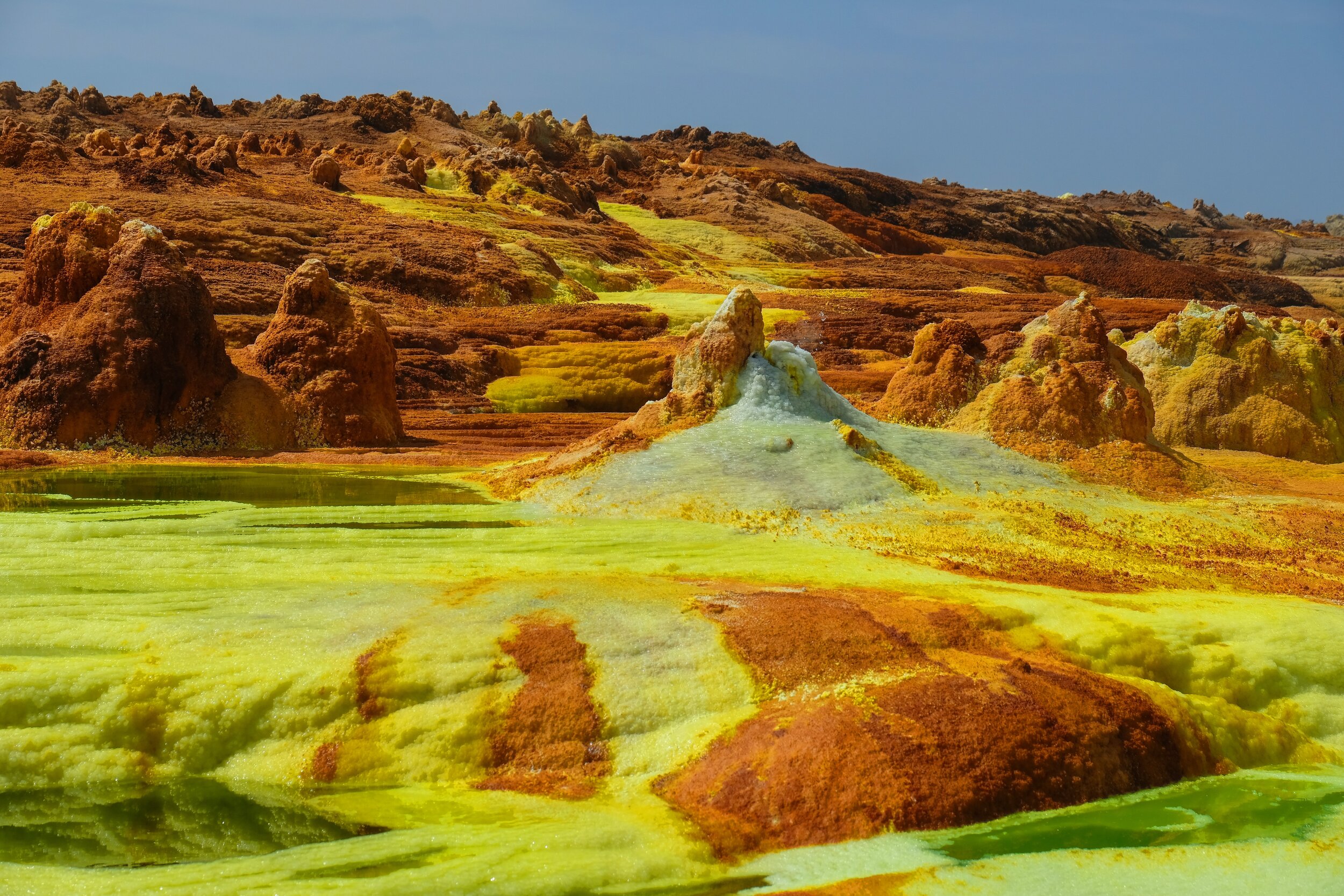Natural Mineral Waters
are different from other types of waters
Such as municipally treated water—due to the high concentration and content of minerals. There are both cold mineral waters and thermal waters naturally heated by the earth’s core. Water travels through the depths of geological time, dissolving minerals on its way to the surface and emerges as springs with a chemical composition that can be used to hydrate and heal. Some waters remain underground, absorbing minerals and gases for thousands of years, before emerging to the earth’s surface.
The human body requires minerals to regulate our metabolism, hormones, enzymes and general health. Research has demonstrated that natural mineral waters refresh oxygen levels within the body, revitalize the skin, calm the nerves, and is beneficial to the functioning of certain body systems. Human skin, the largest organ of the body, absorbs only the amount of needed minerals from the water, which is a much more effective system than taking mineral supplements through the digestive system.
Commonly found minerals include, silica, sulfur, sodium, calcium, magnesium, potassium, and iron, as well as essential trace minerals such as lithium, manganese, bromine, iodine, selenium and radium. Highly mineralized mud clays are also used in Balneology for localized beauty and therapeutic treatments.
Below are several of the commonly found minerals in natural mineral waters with their geological origins and related health benefits.
The Health Benefits of Minerals
Calcium
Geology: An alkaline earth metal found in limestone and marble.
Health Benefits: Hydrating with Calcium rich mineral waters allows for a consistent level of calcium in the body’s fluids and tissues, which is needed for muscle contraction, blood vessel contraction and expansion, the secretion of hormones and enzymes, and communication through the nervous system. An adequate intake of calcium builds and maintains proper bone mass and helps prevent osteoporosis.
Magnesium
Geology: An alkaline earth metal, found in dolomite, carnalite and seawater.
Health Benefits: Hydrating with Magnesium rich mineral waters supports energy production, oxidative phosphorylation, and glycolysis. Magnesium is a cofactor in more than 300 enzyme systems that regulate diverse biochemical reactions in the body, including protein synthesis, muscle and nerve function, blood glucose control, and blood pressure regulation. Magnesium also plays a role in the active transport of calcium and potassium ions across cell membranes, a process that is important to nerve impulse conduction, muscle contraction and normal heart rhythm
Potassium
Geology: An alkali metal, typically in carnallite, langbeinite and polyhalite that has been formed in ancient lake and sea beds.
Health Benefits: Hydrating with Potassium rich mineral waters alkalizes the system by working with sodium to balance body fluids. Potassium helps regulate the heartbeat and is necessary to move nutrients and wastes through the cell walls. More of this mineral is needed when the body is under physical or mental stress. It is a natural pain reducer.
Sulfur
Geology: Non-metal sulfur is usually derived from a combination of minerals, most commonly in sulfides of copper, iron, lead, and zinc or in sulfates such as barium, calcium, magnesium and sodium. It is usually found in salt deposits and volcanic regions.
Health Benefits: Hydrating with Sulfur rich mineral waters has been used medicinally since ancient times. Also known as “nature’s beauty mineral”, because your body needs it to manufacture collagen, which helps with skin elasticity and keeps us young looking. Sulfur is contained in every cell in the body. Approximately 0.25 percent of your total body weight is sulfur. It is most concentrated in keratin which gives you strong hair, nails and skin. Sulfur eases irritated skin conditions and helps protect the body against toxins in the environment. Inflammation can be relieved by taking a soothing bath in hot sulfur springs
Lithium
Geology: An alkali metal commonly found in crystalline granite which is made up of a combination of minerals including spodumene, petalite and lepidolite.
Health Benefits: Hydrating with Lithium rich mineral waters can help protect your brain from exposure to the toxins produced by your own body. Toxic molecules are formed naturally during the course of normal brain metabolism. Lithium supports nervous system, mood and sleep.
Carbon Dioxide Gas
Geology: Produced as the by-product of combusting hydrocarbons, it is also the natural respiration of all living organisms on earth. Thermal water sources are the primary sites where earth releases carbon dioxide, from sedimentary rocks such as limestone, dolomite or calcite.
Health Benefits: Stimulates breathing in small quantities and dilates the peripheral blood for improvement of circulation
MUD | PELOIDS
Geology: Found in clay, bog earths, moors and peats
Health Benefits: Muds provide medicinal minerals for absorption and is good for skin firming masks because it removes toxins from the skin and body.








